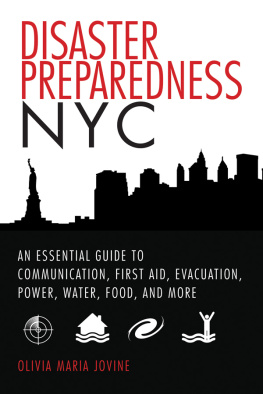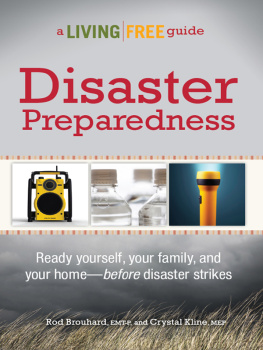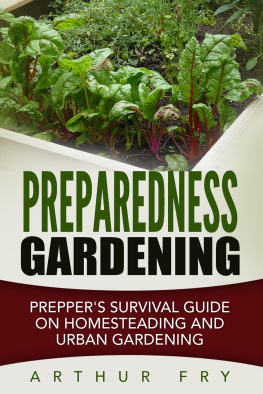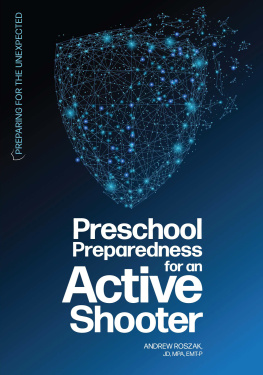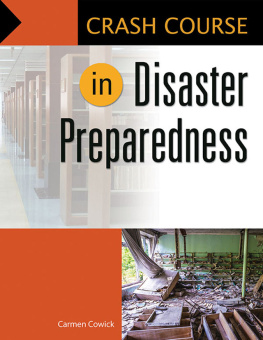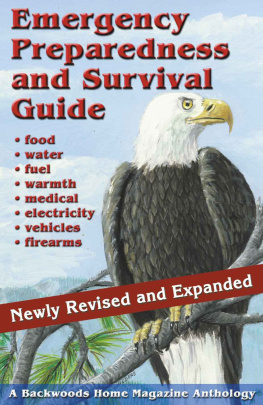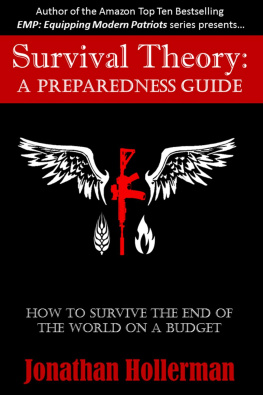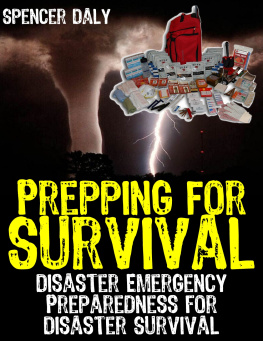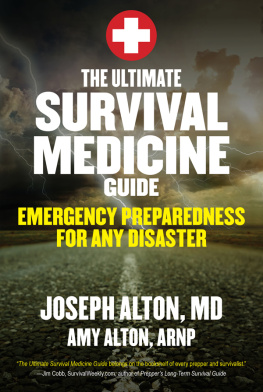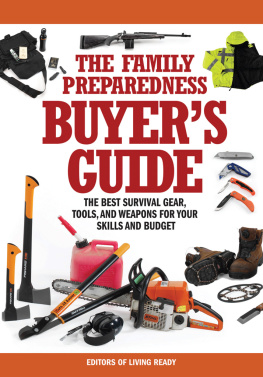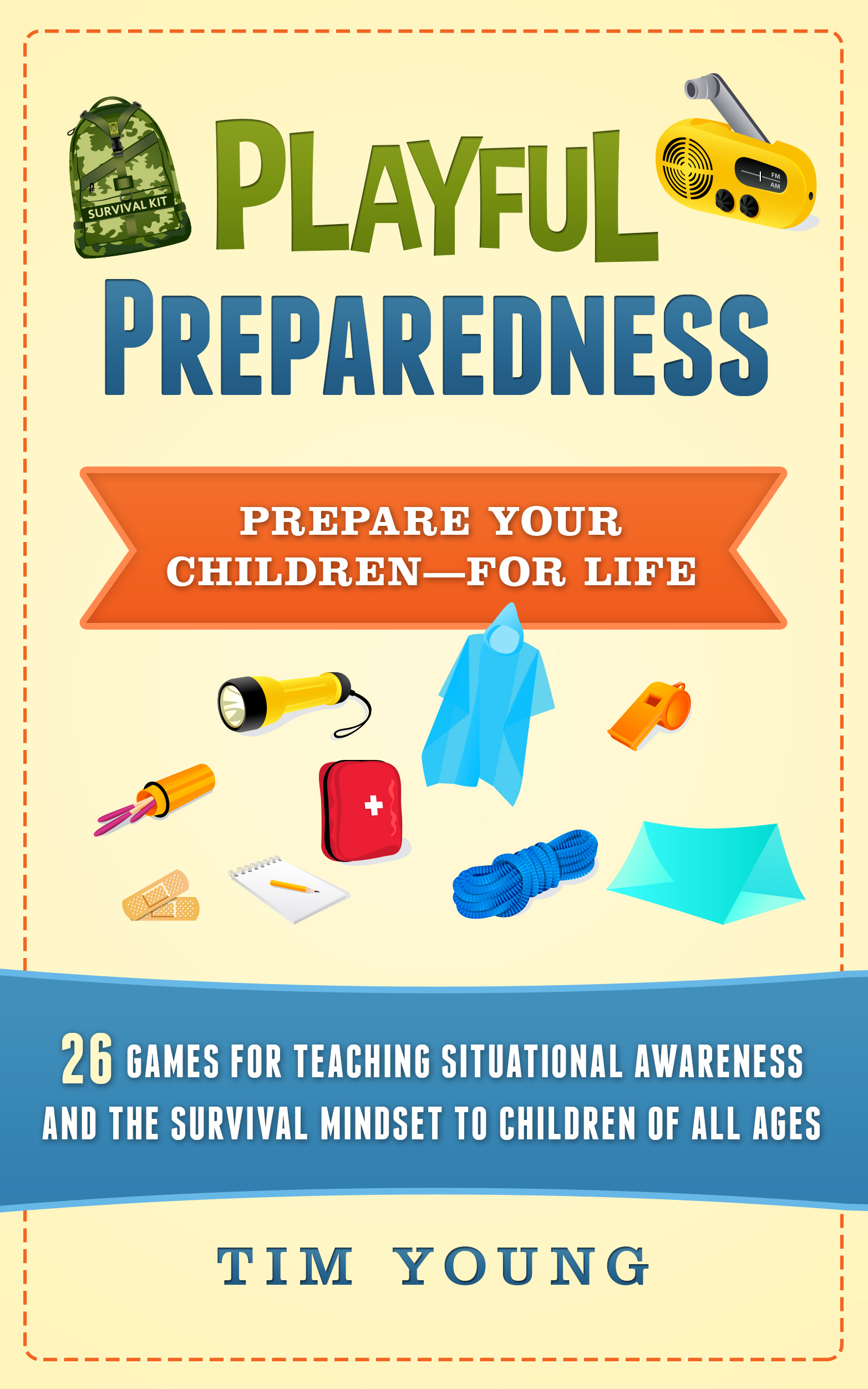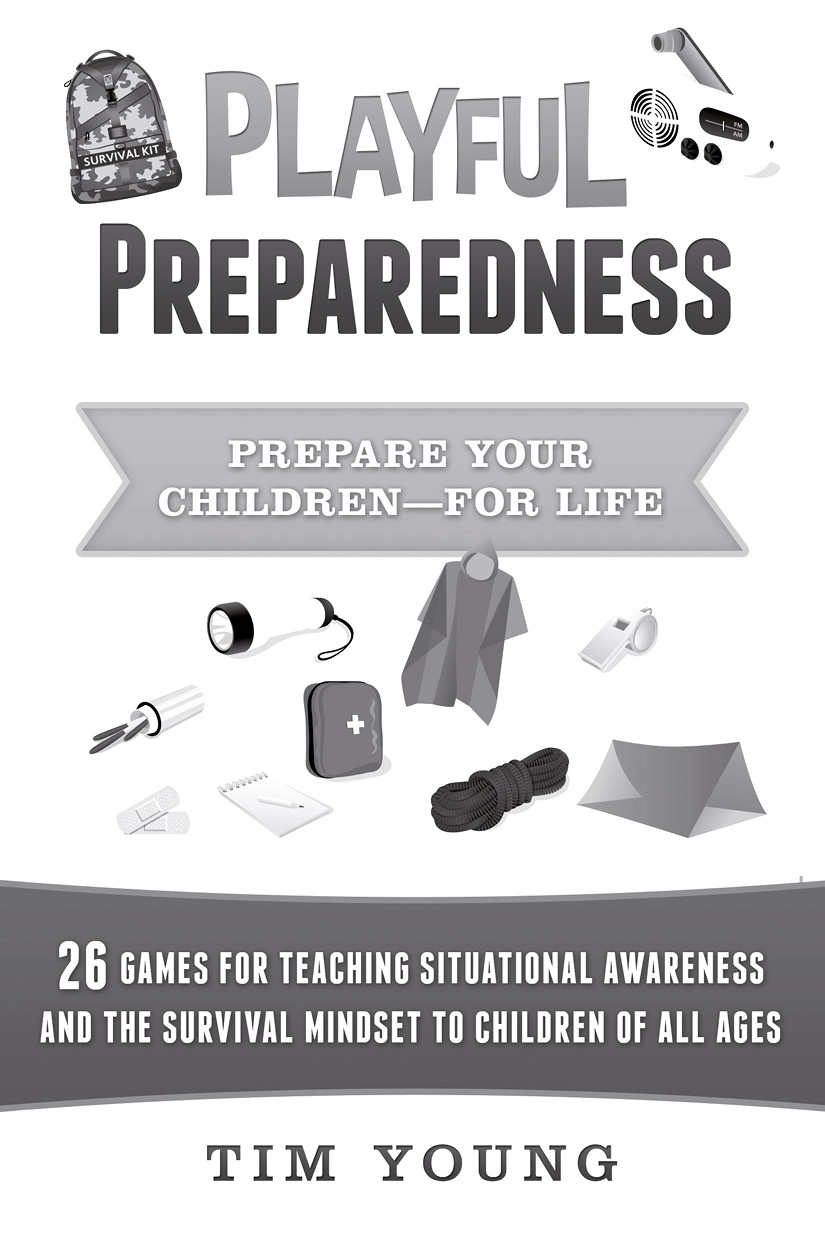COPYRIGHT
Playful Preparedness Copyright 2015 by Tim Young. All rights reserved. No part of this book may be reproduced in any form or by any electronic or mechanical means, including information storage and retrieval systems, without permission in writing from the author and publisher, except by a reviewer who may quote brief passages in a published review.
DISCLAIMER
This book is for entertainment purposes only. The views expressed are those of the author alone, and should not be taken as expert instruction or commands. The reader is responsible for his or her own actions. Adherence to all applicable laws and regulations is the sole responsibility of the purchaser or reader.
preface
I recall playing outside as a youngster until dark , when mom would call me homeusually for the third time. My mother, like her mother before her, could recall the same memory from her childhood.
Todays children will have no such childhood recollection.
While I, like most children from the 60s or 70s, spent hours each day playing outdoors, a recent study revealed that the typical American child spends only four to seven minutes per day playing outside. By contrast, digital screens hypnotize our children for more than seven hours each day. With this digital assault on their education, its hardly a surprise to learn that children can recognize over 1,000 corporate logos, but fewer than 10 native plants.
Since the time I was a kid, childhood has transitioned from outdoors to indoors, and virtual reality has replaced the real world.
Even though I thought of playing outside aswellplayful, in truth my play prepared me to survive in the world. The games I played with others taught skills from teamwork to negotiation, as we bartered baseball cards. We kids foraged for blackberries and muscadines, built forts and tree houses as shelters and knew how to fish and hunt alone before we were 10. We sometimes slept outside and tended our campfires, and we knew a little something about how to avoid violence when we could, but defend ourselves (and others) when we couldnt.
From outer space, Earth may look the same as it did during my childhood, but a close inspection reveals that we live in a very different society. Today, violence surrounds us, from terrorism to school shootings to road rage. As our society has become more fragile and dependent on electricity and fossil fuels, disasters cripple us more frequently than ever, whether they are manmade, natural or accidental.
What skills do todays children have to prepare them to face these threats of violence and disasters? For that matter, what skills and resources do their parents have?
This book, Playful Preparedness , is designed to open the door to preparedness. The 26 games and numerous survival skills listed in the bonus sections will help you learn critical survival skills that, perhaps, werent taught to you. Then you can teach your children those same skills in a fun, family oriented way.
While you can easily play some of the games in a moving car or inside your home, most of them will reacquaint you with nature, while introducing your children to it for the first time. The activities in this book are appropriate for all ages, from toddlers to teenagers, and Ive included many ways to increase the challenge of each game as your children improve their skills.
I hope you enjoy Playful Preparedness, and that it helps you and your children to become better preparedfor life.
Tim Young
Preparing children for disasters is more important than teaching them how to tie their shoes
Tim Young
INTRODUCTION
THE ORIGINAL PREP SCHOOL
Until I was four years old my family lived in the old house. It was a wooden, four-room cabin perched on a mountain stream that my grandfather built in the 1940s. I didnt know it, but we were behind the times since most people had moved beyond our very primitive lifestyle.
When we wanted a drink of water we walked to our spring, filled a bucket and toted it home. If grandma needed hot water she had to start a fire first.
While my sister and I played outside in the dirt, grandma cleaned clothes on a washboard in the creek and wrung them dry. She let us help when she churned butter or shucked corn, then taught us to start a fire for the wood stove while she killed a chicken for dinner. After dinner we got to feed the pigs, harvest the garden and stack the jars of food on the shelf that grandma canned. For fun, I would sit on the porch and practice knife skills by whittling away on a piece of hickory.
As it turns out, my childhood was the original prep schoolthe one that prepared me for life.
By contrast, most of todays parents (and even their parents) didnt grow up learning those skills. Instead, they were born into a life of dependence on modern conveniences. As a result, todays children are only taught modern survival skillssuch as flipping a switch that turns on lights and turning on a faucet to get drinking water.
Todays children can navigate with technology, but not with a paper road map. They can find Wi-Fi in any city, but ask them to purify water from any source and they cant. They can use a microwave, but they cant build a fire.
Beyond the basic survival skills that were failing to pass down to our children, our world has many more violent threats than it did a few generations ago. In addition to common natural disasters, our society is becoming increasingly and indiscriminately violent. Unspeakable tragedies include abductions, sexual assaults, and deadly shootings at schools, from kindergartens to universities.
Were shocked when we see headlines of violence, such as these real-life examples from recent years :
- Bombing at the Boston Marathon.
- Gunman kills 26, Including 20 Schoolchildren in Connecticut.
- Thirteen Dead, 29 Injured at Fort Hood Shooting.
- Gunman shoots 70, Kills 12 at Batman Movie.
- Virginia Tech Shooting Leaves 33 Dead.
- Nine Killed at Church in Charleston, SC.
We keep glued to the news reports and cringe when we contemplate the truly horrific nature of the tragedy. But do we change our behavior or do anything to prepare ourselves for such an event? Do we take our children aside and teach them skills that could save their lives ?
For most people, the answer is no. We turn our heads and remain inactive. The unfortunate truth is that so many deadly life-altering tragedies surround us that we are, ironically, unaware of them.
These newsworthy events seem less real when absorbed through television and news reportsmore like something from a movie than real, human suffering. Soon, the horrific images fade, normalcy bias takes over and we get on with our own lives.
But the fact is that small and large-scale disasters happen all the time, every day, and it can happen to you and your family . When it does, your prepared child could just save your lifeas Kenneth Riggins learned.
Kenneth Riggins smelled smoke when his dogs woke him at 2:00 a.m. He rushed to wake his five-year old daughter, Angelica, who had just participated in fire safety training at school. Incredibly, she knew what to do and crawled out of the house on her hands and knees. She ran to the neighbors, who called 9-1-1. Within moments the fire department arrived and Angelica told them that her dad never followed her out of the house. They rescued Kenneth Riggins, thanks to his prepared and brave daughter.
This book is about helping you to empower your children with the crucial skills they need to survive and thrive. Just as the famous motto of the Boy Scouts is, Be Prepared, I want parents, teachers and guardians to empower all children to take care of themselves.


